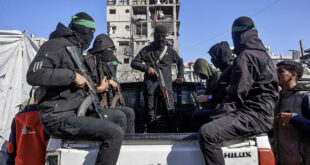The trial of former Croatian Serb leader Goran Hadzic resumed for 2013 with testimony about the exhumation of war crimes victims from mass graves.Davor Strinovic, a Croatian medical expert who was part of a commission tasked with finding missing people, said he helped to exhume bodies at the Ovcara farm near the town of Vukovar and in the Croatian villages of Dalj, Erdut and Lovas, where war crimes were committed by Serb forces.
According to the prosecution at the International Criminal Tribunal for the Former Yugoslavia, ICTY, Hadzic was responsible for the crimes committed in those areas.
Strinovic presented reports on the exhumations of around 100 people found in the early 1990s in these three villages and a report on the mass grave at Ovcara, where 200 bodies were found.
“The exhumations started in 1996, as local Serb authorities and the Yugoslav People’s Army for a long time opposed this request [from Croatia]. This affected the decomposition of the bodies,” said Strinovic.
Following the fall of Vukovar to Serb forces in November 1991, hundreds of prisoners were executed at the nearby Ovcara farm.
The ICTY has already sentenced former Yugoslav Army colonels Mile Mrksic and Veselin Sljivancanin to 20 and 10 years in prison respectively for the crimes at Ovcara.
Hadzic faces 14 war crimes charges, including the persecution, extermination and torture of non-Serb civilians from Croatia between 1991 and 1993.
During the war in Croatia, he was the president of the self-proclaimed Serbian Autonomous District of Slavonia, Baranja and Western Srem, and subsequently became the president of the Republic of Serbian Krajina.
According to the ICTY’s indictment, Hadzic was part of a joint criminal enterprise alongside the late Serbian strongman leader Slobodan Milosevic, paramilitary commander Zeljko Raznatovic (also known as Arkan) and Serbian Radical Party chief Vojislav Seselj.
The trial continues on Thursday.
 Eurasia Press & News
Eurasia Press & News



